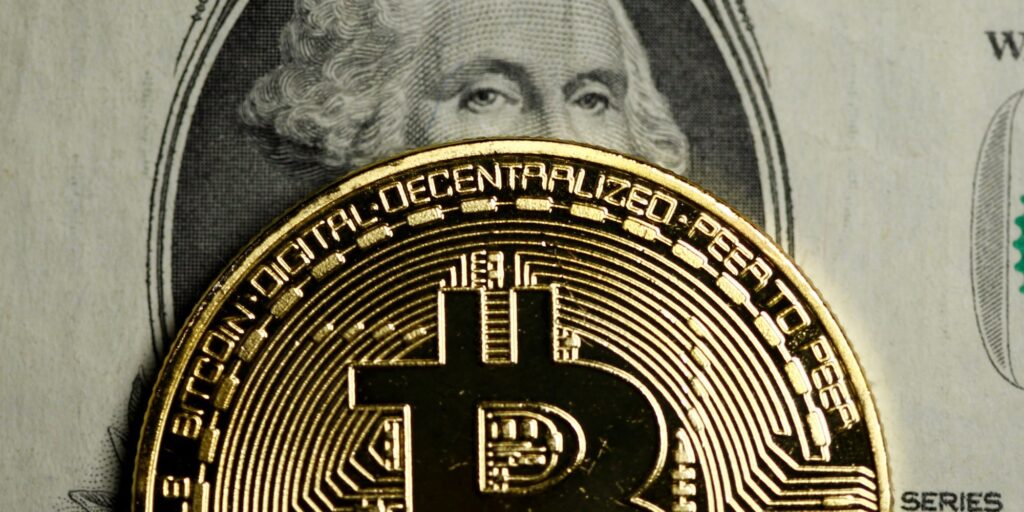- Argentine purchases of bitcoin jumped to their highest weekly level in 20 months, Bloomberg reported.
- Bitcoin's rally makes it an attractive hedge against the country's 276% inflation rate.
- The dollar has lost some appeal among Argentines as the country's peso has strengthened.
Argentines have flocked to bitcoin as it reached record highs this month, looking for a source of relief amid never-ending inflation.
In the first week of March, the number of weekly bitcoin purchases surged to 34,700, the country's highest volume in 20 months, Bloomberg reported. That's more than double levels seen in early February.
It follows as bitcoin has gained sharply in recent months, rising as much as 73% year-to-date and hitting an all-time of over $73,000.
The sudden rally — set off by the US' first spot bitcoin ETFs and excitement for April's halving event — has made the token an attractive hedge in Argentina, where inflation remains at 276%. That's while the country's leadership is looking to stop its sixth recession in a decade.
Typically, the US dollar has been the nation's go-to source when faced with instability, especially as its economic issues dramatically deteriorated the value of the peso.
Even before the dollar burst above 1,000 pesos for the country's popular black market exchange rate last October, the greenback had become widespread in Argentina, and its use has included everything from Airbnb rentals to company salaries.
However, the peso has strengthened around 10% in the last two months, dampening the greenback's appeal. According to Bloomberg, that's as President Javier Milei has kept the peso in circulation from growing as part of his effort to clean up the central bank's balance sheet.
Like the dollar, demand for digital tokens tied to real-world currencies has also fallen, dropping as much as 60%-70% during bitcoin's rally.
Last year, Milei's electoral campaign sold voters on the promise of dollarizing Argentina's economy. However, since taking office in December, he has only devalued the official peso-to-dollar rate, and has since indicated that it'll be a long while before dollarization becomes approachable.
